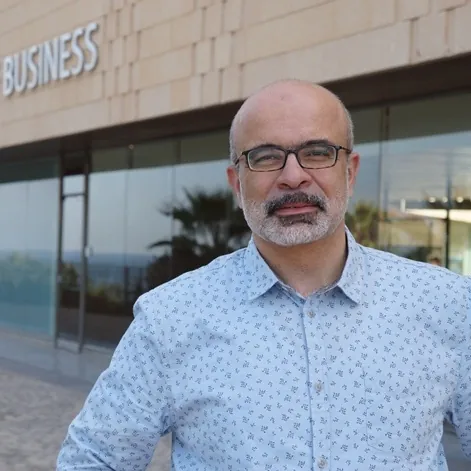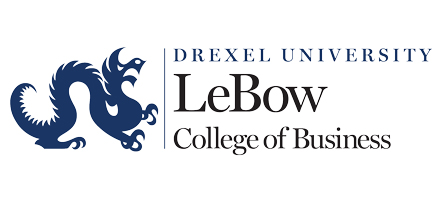
The Olayan School of Business at American University Beirut
As violence flares once again between Israel and Hezbollah and economic instability deepens at home, the Suliman S. Olayan School of Business at the American University of Beirut continues to operate — and finds itself once again making contingency plans to keep classes running, degrees on track, and hope intact.
The school’s mission — to educate, prepare, and inspire future business leaders — persists, even when the world around it does not, says Dr. Yusuf Sidani, dean of the business school.
“We’ve been operating in crisis mode for years,” Sidani tells Poets&Quants. “Economic collapse, financial crisis, the Beirut blast, the pandemic, and now the regional war — we’ve had to master academic continuity.”
NAVIGATING CRISIS WITH CONFIDENCE
Academic continuity has been possible at the Olayan School because of an agile hybrid learning model that allows students displaced by conflict to continue their education — all they need to do is get to a computer with a camera and internet access.
New eruptions in the Israel-Hezbollah conflict, which had been simmering beneath a ceasefire since last November but broke into new violence this month, may again make the new model necessary. On March 21, according to Reuters and other news outlets, rockets were fired from Lebanon into northern Israel, prompting Israeli airstrikes in Beirut’s southern suburbs, marking the first such attack since the ceasefire. Hezbollah has denied involvement but warned of potential action if Israeli attacks continued. The situation has led to civilian casualties and displacement, with international calls for restraint to prevent further escalation.
Sidani, in an interview with P&Q in late November, recounts how, during the war last year, several bombings happened within a five-minute drive of OSB’s campus. Yet, through it all, the school only closed for one week. Classes moved online temporarily, then resumed in hybrid mode; final exams are still on track.
“Some students are here, some are online, and our faculty deliver courses to both simultaneously,” Sidani says. “It’s not ideal — but it’s working.” It may have to work again this spring.
A POPULAR & GROWING SCHOOL

Yusuf Sidani, dean of American University Beirut’s Olayan School of Business: “It’s not just the campus — though it is one of the most beautiful in the world. It’s the legacy. The alumni network. The emotional connection. My mother studied here in the 1950s. My father paid full tuition for three of us. For many Lebanese families, AUB is in our DNA”
While disruptions might scare off prospective students or faculty, OSB has bucked expectations. Applications surged 35% in the most recent admissions cycle, Sidani says, and enrollment jumped from under 200 to over 330 new undergraduate students. “Early signs for next year look just as promising,” he says.
Graduate programs at OSB are small, but make up for their lack of size, Sidani says, with outsized impact. The MBA and online MBA enroll roughly 90 students combined, while specialized master’s programs in business analytics, finance, and HR attract a wide variety of early-career professionals and career shifters. The Master of Science in Business Analytics is the university’s largest incoming class.
A GLOBAL CLASSROOM, ROOTED IN THE REGION
Reflecting Lebanon’s complex demographic identity, the Olayan School’s student body is both local and international. Dual citizenship is common, and OSB also draws African students through the MasterCard Foundation, as well as expatriate Lebanese professionals from across the Gulf and West Africa.
This global reach is matched by a commitment to practical, regionally relevant education. “We don’t just teach about Google and Amazon,” says Sidani. “We’re writing cases about companies in the Middle East, Africa, and Lebanon — stories our students can see themselves in.”
OSB’s Case Hub, launched in recent years, is a regional pioneer in promoting case-based pedagogy. It produces original content, hosts workshops for other universities across the Arab world, and elevates regional voices in business discourse.
RANKED FIRST IN CASE COMPETITIONS — TWICE
If OSB is relatively quiet on the global stage, its students are not. In the fall alone, OSB teams won two international case competitions — including first-place finishes in Hong Kong and Australia. These competitions included rivals from Berkeley, Copenhagen Business School, and other top schools.
“These were during wartime,” Sidani says, still awed by the students’ resolve. “We were hesitant to send them. We had to talk to parents. But they wanted to go — and they won.”
This isn’t new. OSB has consistently ranked among the top global performers in case competitions, thanks in part to a strong emphasis on experiential learning.
LEARNING BY DOING — AND LEADING
OSB’s hands-on experiences go well beyond case work. The school’s prestigious Investment Management Program puts real capital in the hands of students — currently managing $1.4 million under faculty and board supervision. Participants travel to New York, London, and Dubai to meet with investment professionals and are routinely hired by top firms.
Executives in the EMBA program complete international residencies with institutions like IE Business School in Spain, Trinity Business School in Dublin, and Berkeley Haas in California (even if that one had to happen online due to COVID). Regular MBA students also travel abroad through elective immersion courses.
For many, it’s their first trip outside Lebanon — a powerful, often transformative experience.
A NEW STRATEGIC VISION, ANCHORED IN RESILIENCE
In November, OSB launched its new five-year strategic plan aligned with AUB’s “Vital 2030” vision. The plan reaffirms its commitment to student experience, but also sets new goals: expanding the school’s role in shaping policy and strengthening ties with the private sector.
“OSB has played a role in the national conversation around diversity and workplace equity,” Sidani says. “But we want to do more — especially as Lebanon’s economy seeks a way forward from a devastated banking sector.”
The school has engaged in ongoing dialogue with policymakers, bankers, and regulators to explore how business education can contribute to economic recovery. “What is our role in rebuilding the banking sector? It’s a question we take seriously,” Sidani says.
125 YEARS OF BUSINESS EDUCATION
This year marks two major milestones for the school: 125 years of business education at AUB and 25 years since the naming of the school for Saudi businessman and philanthropist Suliman S. Olayan in 2000. Sidani, who earned his undergraduate degree at AUB and returned as a faculty member in 2001, has been part of the OSB journey for nearly three decades.
“It’s not just the campus — though it is one of the most beautiful in the world,” Sidani says. “It’s the legacy. The alumni network. The emotional connection. My mother studied here in the 1950s. My father paid full tuition for three of us. For many Lebanese families, AUB is in our DNA.”
Indeed, OSB’s network stretches far beyond Lebanon’s borders. Among its trustees is Ann Kerr, widow of former AUB president Malcolm Kerr — father of Golden State Warriors coach Steve Kerr — who was assassinated in 1984 during Lebanon’s civil war.
“That she chose to stay involved with AUB, after that tragedy… it tells you everything about the kind of institution this is,” Sidani says.
BUSINESS THINKING WITH PURPOSE
In a world increasingly defined by uncertainty, OSB continues to offer clarity and purpose, Sidani says — through its commitment to ethical leadership, regional relevance, and academic rigor.
“We’ve had every reason to fold,” says Sidani. “And yet we continue — not just to survive, but to lead.”
If there is such a thing as a global model for crisis leadership, the Suliman S. Olayan School of Business might just be it.
DON’T MISS ‘BEGINNING OF A NEW JOURNEY’: 2025 DAWNS BRIGHT AT THE AMERICAN UNIVERSITY IN CAIRO and P&Q’S MIDDLE EAST HUB






